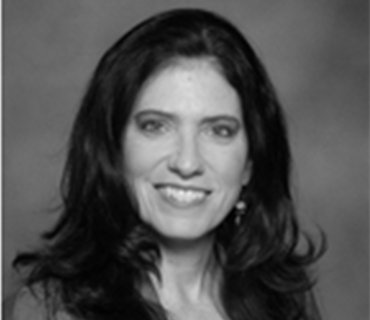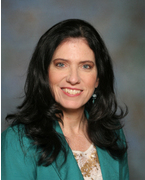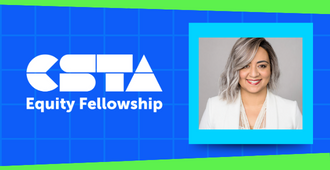Posted by Kenz Mangan on Mar 13, 2023

We recently interviewed Cindi Chang (she/her), Interim Director at the Nevada Department of Education, Manager of the state’s CTE Information and Media Technology programs and Adjunct Professor of Computer Science Education at Touro University Nevada.
Full Story
What is your name, preferred pronouns, title, and place of employment?
Cindi Chang (she/her), Interim Director at the Nevada Department of Education, also manages the state’s CTE Information and Media Technology programs. Additionally, I am an Adjunct Professor of Computer Science Education at Touro University Nevada.
What’s your favorite CS experience (e.g. teaching, research, other experience related to CS)?

My background is varied when it comes to CS – industry, education (high school and university), state leader – but I would have to say my favorite CS memories include developing student-led “Girls In Tech” programs in the high school I taught that brought in female middle school students to learn computer science from their high school peers. It increased the future enrollment of females in my computing classes to just around 50% as those middle school females matriculated in! I also started a “Hip-Hop Meets I.T.” program that brought underrepresented student groups in CS together with my student programmers so they both could learn from each other – one group teaching coding and the other teaching hip-hop dancing. They persevered through their anxiousness on both sides to gain a greater understanding of each other’s worlds and opportunities. Equity and diversity in computing, opportunity, and access are at the foundation of my greatest teaching memories.
How long have you been involved in the CSTA?
In addition to being a founding member of our Nevada state CSTA chapter in the early 2000s, I am serving in my second term as the State Department Representative on the national Board of Directors.
What motivates you to be involved with CSTA?
I love CSTA! The relationships, the support, the training, the collegiality — all of it. I have heard Jake Baskin, our Executive Director, call CSTA: “The largest computer science department in the country!” That’s exactly what it feels like. We have the opportunity to support the administrators to see the vision of computing education for all students in their schools, who then support their teachers in having the resources and training that CSTA provides, and they, in turn, will provide the necessary instruction for our students. We have a symbiotic relationship and it all starts with the support from passionate educators who are involved with CSTA at every level.
What have you learned that’s most interesting to you either about the CSTA or K-12 CS Education?
It is interesting that many of our schools and districts, despite having lived through the pandemic where technology was at the forefront of every discussion, still do not see the value and necessity of computing education in their schools. If the CS coursework does not fit in the master calendar, that becomes more of a priority. In a CSTA blog post in the fall of 2020, I said this: “The pandemic has drastically accelerated our society’s reliance on computer technology while also accelerating significant workforce trends like telework and job automation… The pandemic will cause that future to arrive much sooner than anticipated. There is less time to adjust to these changes, and leadership without these skills will become obsolete.” I still hold true to those statements. The students who receive computer science education and training from the youngest grades, progressing year to year, will be prepared. And those who don’t will not. Putting these equitable and accessible computer science education systems in place is our legacy for our students and our collective future.
What do you hope for CS education in the future? How do you believe CSTA will help in achieving this?
My hope for the future is that the discussion of implementing CS education in the K12 curriculum is no longer a plea but that it is simply a common and critical component of the national curriculum, much like math and literacy. We would never question the legitimacy of those subjects in our educational system. I have traveled the globe and listened to educators in many different countries on many different continents. This is a consistent conversation, yet some countries do not question the criticality of computer science education for their students. They require it. My hope is that we collectively harness that goal into a reality.
CSTA is beautifully positioned to support our state leaders, policymakers, administrators, and educators — all stakeholders who impact teaching and learning — in preparing our teachers to teach CS, our leaders to promote and champion CS education in their schools, and our policymakers to support legislation on behalf of our students. It all begins with supporting teachers. And that is exactly what we do at CSTA.
What else would you like to add that might be interesting to readers about you, your commitment to CSTA or perhaps why others should also be interested in becoming involved?
I have always told my own children, “There is strength in numbers.” We need folks to become involved in CSTA, whether at your chapter level or at the national level. There are Board of Director positions that come up frequently at the national level. Still, there are also affinity groups, standards and resource development committees, conference planning teams, and so much more that you can be a part of. Participating in this work is a way to leave your legacy in computer science education and support our students well beyond our roles as educators in the classroom. And it could quite well be life-changing for them and for you.




